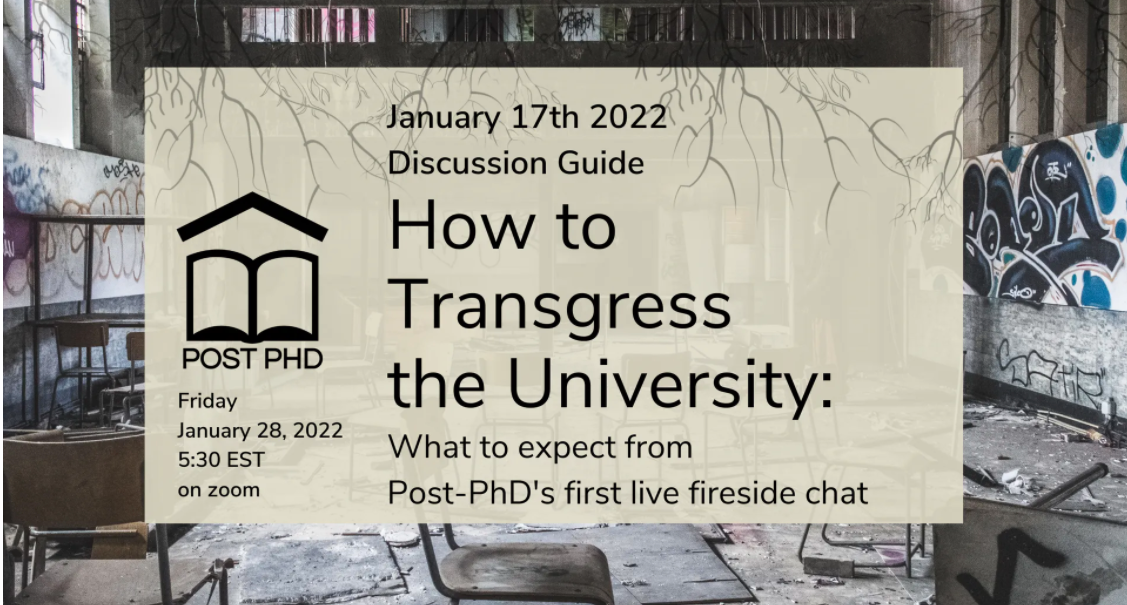On Leaving the Academic Pyramid Scheme›
On Leaving the Academic Pyramid Scheme›
In this post: I discuss the difficulty of leaving academia and the importance of strategic thinking and embracing the unknown when it comes to next step career moves.
Next week: A cold dose of reality demonstrating academias failure to be the meritocracy we all thought it was.
If you are reading this post, chances are, you are a graduate student or recent graduate. You have probably been surfing the web, as I did, obsessively with search words like “post-ac” and “alt-ac” and reading your fill of the ills of higher education.
It’s a difficult decision to leave, even if it might not have been a decision at all, but rather a necessity. It’s scary to leave something around which you have based your entire sense of self and identity for so long.
The way we are trained as academics is to ignore our emotions and our gut instincts, and instead rely on research and on the words of others on which to base our opinions and direction. Thus, leaving academia and the career path it outlines is terrifying. It threatens to rupture everything we have spent years (or decades) sculpting and perfecting. We have been indoctrinated into a cult as the lowest possible member with the promise that, once we have “earned” our place, we will move up the ladder, earn more prestige, and do less grunt work.
I know the feeling, you’re probably thinking: but I’ve invested so much time into this bottom-level grunt work, and to leave now would mean it would never come to fruition.
And here’s the brutal truth: It will not come to fruition for the majority of us. This has nothing to do with the quality of your work, where you are studying, how much you have published, or how many classes you have taught. Instead, succeeding in academia, that is, earning a professor position, has as much to do with luck and a willingness to play the game. This game involves a grueling season of applications (the fall) to everything—fellowships, post-docs, VAPs (Visiting Assistant Professors), and the very few coveted tenure-track positions that are most likely at a school you’ve never heard of, in a state you probably don’t want to live in.
Academia, in its increasing corporatization, has become a pyramid scheme for tenured professors. There are fewer and fewer tenured professorships out there, and due to the economy and that oh-so-cushy tenured position, there are fewer professors willing to retire. On top of that, even when professors do retire, it can take years for the department to ask for the funding for that position, and more often than not, the role that tenured professor filled is then filled by adjuncts.
We all know about adjuncts and adjunct pay, so I’ll spare that beleaguered point for a minute.
What infuriated me the most was when I realized that many of my colleagues, either as ABD (All But Dissertation) or as hard-won Ph.D.s, remain at the university in which they studied as adjunct lecturers. They, by this point, have become amazing teachers and lecturers, love their job, and continue to hone their craft. But how good they are has nothing to do with their level of compensation, and almost always means no benefits.
This led me to the sickening conclusion that: whether they like it or not, many Ph.D. programs offer the promise of training their graduate students to become professors, but in reality, are merely training them to fill the endless demand for adjunct lecturers, who are destined to always remain at the bottom of the pyramid. We are being trained to become compliant cogs in the greater money-making scheme of corporate academia. In other words, graduate students are promised a position at the top of the pyramid by those who currently exist there, when these professors are at best only half-aware that their jobs no longer exist, or that the chances of securing their current tenure-track position are quickly vanishing into the rear-window (and perhaps into myth) of professors in academia. I’ll say it because no one else will: doesn’t this sound a bit like Trump University? How different is the actual university structure from its profit-driven counterparts?
We are encouraged initially to pursue radical ideas, to push the envelope of what our disciplines mean within the larger scope of the humanities, but as we edge closer and closer to our defense, something changes: we are instead encouraged to “tone it down” for the job market. In other words, we are told to adhere to what is already out there.
And for what exactly? Usually, that means we become adjunct lecturers, or jump from VAP to VAP, moving across the country each year only to teach exhausting course loads that prohibit us from publishing, which we are told, is the only way to climb out of the adjunct and VAP spiral. It’s a vicious cycle for which there are few winners.
So I have decided to bow out and become terrifyingly free and without a firm direction career-wise for the first time in my life. Keep reading my posts to find out how it’s going, what I’m learning along the way, and about the seemingly endless opportunities, there are for Ph.D. and ABD students, as long as you’re willing to create them for yourself.
-Allison Harbin
























In this post: A reflection on the UCU strikes, past and upcoming content, and what the f*ck we are supposed to do with all this mess, including a list of what I'm reading.